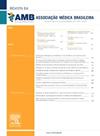The effect of functional independence levels on sleep and constipation in children with cerebral palsy
IF 1.3
4区 医学
Q2 MEDICINE, GENERAL & INTERNAL
引用次数: 0
Abstract
SUMMARY OBJECTIVE: The study aimed to examine the effect of functional independence levels on sleep behavior and constipation in children with cerebral palsy. METHODS: This cross-sectional observational single-center study was carried out in a special rehabilitation center in Istanbul. Inclusion criteria were those aged between 4 and 18 years with Gross Motor Function Classification System III-IV-V functional independence levels. Those who had surgery concerning intestinal health, had a chronic infectious bowel disease, had congenital intestinal anomalies, had received botox treatment in the last 6 months, had uncontrolled epileptic seizures, had complained of constipation in the last 6 months, and had cardiopulmonary disease were excluded from the study. The sociodemographic characteristics of the participants and the Gross Motor Function Classification System were recorded. Pediatric Functional Independence Scale (Functional Independence Measure for Children) was used to measure the functional independence level, Pediatric Sleep Questionnaire was used to measure the level of sleep problems, and Constipation Severity Scale was used to measure constipation severity. RESULTS: A total of 60 children who were diagnosed with cerebral palsy were included. According to Gross Motor Function Classification System, 46.7% of the cases were Level III, 35% were Level IV, and 18.3% were Level V. There was a negative moderate significant correlation between Functional Independence Measure for Children and Pediatric Sleep Questionnaire (r=-0.303; p=0.019) and between Functional Independence Measure for Children and Constipation Severity Scale (r=-0.342; p=0.007). CONCLUSION: We described that lower functional independence levels were related to worse sleep and constipation symptoms. The results suggest that effective strategies for developing functional independence levels may be beneficial for both sleep and constipation symptoms in the concept of cerebral palsy management.功能独立水平对脑瘫患儿睡眠和便秘的影响
摘要目的:研究功能独立水平对脑瘫患儿睡眠行为和便秘的影响。方法:本横断面观察性单中心研究在伊斯坦布尔的一家特殊康复中心进行。纳入标准为年龄在4 - 18岁之间,大肌肉运动功能分类系统III-IV-V功能独立水平。那些做过肠道健康手术、患有慢性感染性肠道疾病、先天性肠道异常、在过去6个月内接受过肉毒杆菌治疗、癫痫发作不受控制、在过去6个月内有便秘症状以及患有心肺疾病的患者被排除在研究之外。记录参与者的社会人口学特征和大肌肉运动功能分类系统。采用儿童功能独立量表(Functional Independence Scale, Functional Independence Measure for Children)测量功能独立水平,采用儿童睡眠问卷(child Sleep Questionnaire)测量睡眠问题水平,采用便秘严重程度量表(便秘严重程度量表)测量便秘严重程度。结果:共纳入60例诊断为脑瘫的儿童。根据大运动功能分类系统,46.7%的患儿为III级,35%为IV级,18.3%为v级。《儿童功能独立性量表》与儿童睡眠问卷存在负中显著相关(r=-0.303;p=0.019),儿童功能独立性量表与便秘严重程度量表之间的差异(r=-0.342;p = 0.007)。结论:我们描述了较低的功能独立性水平与较差的睡眠和便秘症状有关。结果表明,在脑瘫管理的概念中,发展功能独立水平的有效策略可能对睡眠和便秘症状都有益。
本文章由计算机程序翻译,如有差异,请以英文原文为准。
求助全文
约1分钟内获得全文
求助全文
来源期刊
CiteScore
2.20
自引率
0.00%
发文量
276
审稿时长
12 weeks
期刊介绍:
A Revista da Associação Médica Brasileira (RAMB), editada pela Associação Médica Brasileira, desde 1954, tem por objetivo publicar artigos que contribuam para o conhecimento médico.

 求助内容:
求助内容: 应助结果提醒方式:
应助结果提醒方式:


